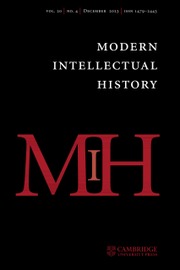(Source: University of Warwick)
Via Legal History Blog, we learned of a CFP on “White Slavery in Transnational and International Context”.
White Slavery in Transnational and International Context, 1880-1950. June 21, 2019, University of Warwick (UK). Keynote: Brian Donovan ((University of Kansas)
This is a call for abstracts for paper, poster and creative presentations for a one day interdisciplinary conference on white slavery, as trafficking in women was historically called. The conference seeks to question how white slavery manifested in transnational and international contexts but welcomes papers on any localities.
White Slavery in Transnational and International Context, 1880-1950. June 21, 2019, University of Warwick (UK). Keynote: Brian Donovan ((University of Kansas)
This is a call for abstracts for paper, poster and creative presentations for a one day interdisciplinary conference on white slavery, as trafficking in women was historically called. The conference seeks to question how white slavery manifested in transnational and international contexts but welcomes papers on any localities.
We welcome papers exploring different aspects of white slavery from nationalism to visual representations, and their impact on anti-white slavery legislation. The conference seeks to investigate white slavery and its legacies from conceptual, legal, popular culture perspectives. It also seeks to place it in relation to wider themes of nationalism, race, gender, and labour, and question how white slavery relates to critiques of modernity.
We invite paper and poster presentations from range of disciplines that explore how white slavery manifested in these different contexts, in different localities, during the years 1880- 1950. The conference is particularly interested in exploring white slavery through the following themes:
* Race, nationality and nationalism
* Regulation / criminalisation of white slavery in domestic and international sphere
* Rhetoric of slavery and neo-abolitionism
* Age, innocence and purity
* Agency, autonomy and free will
* Gender; trafficking in boys / men
* Migration and gendered labour
* Critique of modernity
* White slavery in popular culture / media
We also welcome creative responses to the subject, and in particular poster presentations that engage the audience and foster debate on the conference themes. PG students at any stage of their studies are particularly encouraged to submit proposals for posters or other visual presentations. Poster presentations must be printed in advance of the conference and be size A1, either portrait or landscape (H: 84.1cm x W: 59.4cm); and you have to present in person. Poster session participants populate boards with pictures, data, graphs, diagrams, narrative text, and more - and will informally discuss their presentations with conference attendees during an assigned session.
Please send 300-word abstract for papers and 200-word abstracts for posters with a short bio to the organisers. Deadline is 31 January 2019. PG bursaries may be available.
Dr Catherine Armstrong (Loughborough University) C.M.Armstrong@lboro.ac.uk and Dr Laura Lammasniemi (University of Warwick) laura.lammasniemi@warwick.ac.uk
(source: ESCLH Blog)


















